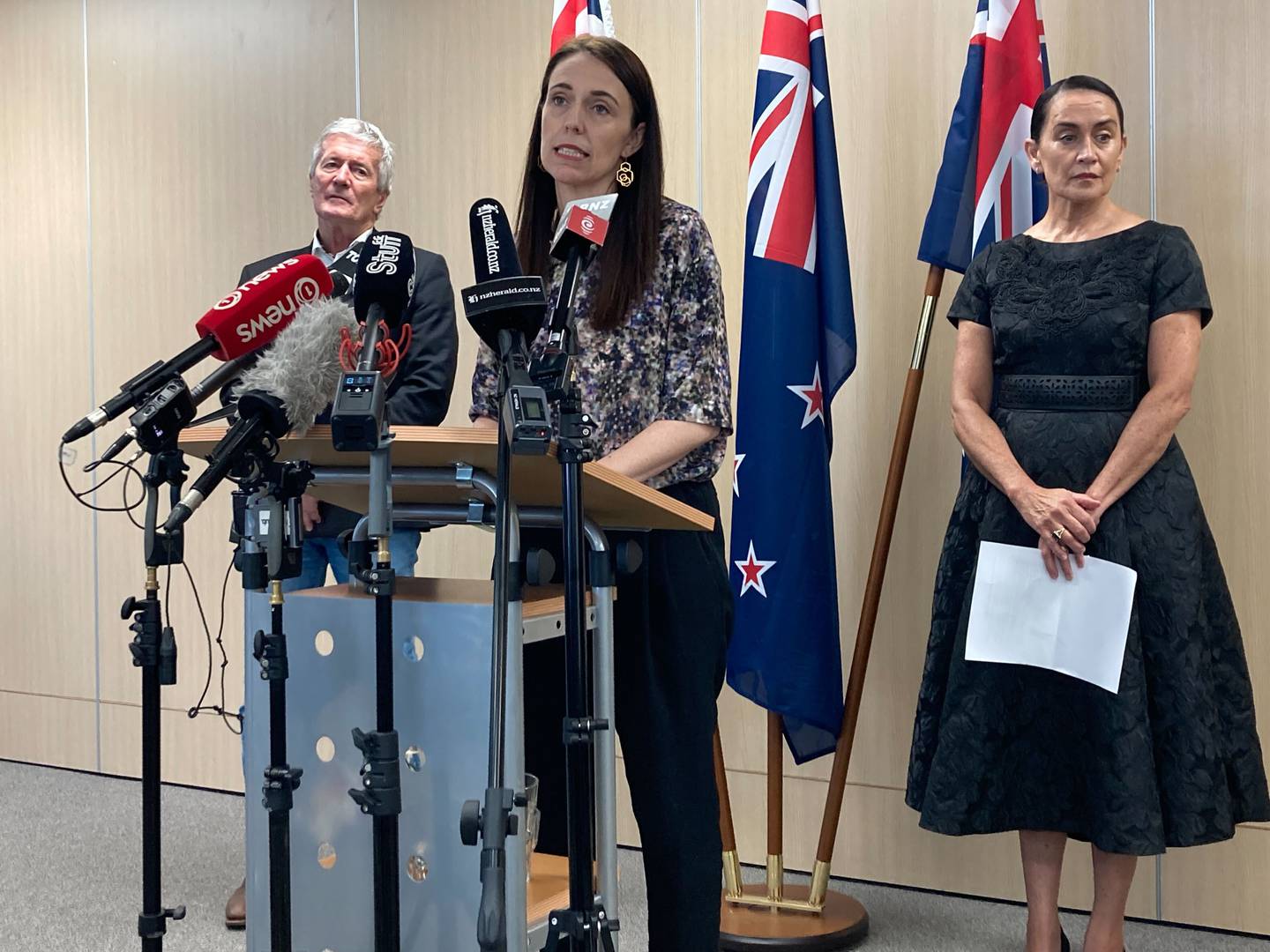
Ardern recently told the New Zealand Woman’s Weekly that the impending holiday period would be the “first Christmas and summer holiday in three years where we haven’t had Covid hanging over us”.
The latest update from the Ministry of Health on Monday reported 42,740 new cases in the community over the previous seven days.
There were 581 people in hospital with Covid-19, including 15 in intensive care, as well as a further 64 deaths related to the virus.
New modelling had also predicted a likely peak of about 1100 people in hospital with Covid on any given day.
That was more than both the first Omicron wave in March (1000 a day) and second in July (836), partly driven by more older people getting the virus for the first time.
The updated scenario shows community cases peaking at about 13,000 a day by the end of this month, up from 11,000 a day in the early modelling for this third Omicron wave.
Speaking from Auckland today on the Government’s agriculture emissions pricing plan, Ardern was asked whether she stood by her comment, given current case numbers and modelling.
Ardern believed her comments had been misinterpreted and what she had meant was this summer would be the first without the risk of border closures, gathering limits or large-scale events being cancelled.
“We do, however, of course, continue to have Covid amongst us so it’s not the case that we do not continue to take very seriously the impacts of the illness and work very hard to make sure that people who need, for instance, anti-virals, who should have booster immunisation or the public health advice doesn’t continue to be shared, it does,” she told media.
Covid-19′s impact on hospitals was still being monitored but initial signs pointed to a less stressed network as hospitals were not burdened by other illnesses, as they were during winter with influenza, she said.
Ardern rejected any suggestion the Government had grown complacent regarding Covid-19, referencing the retention of positive case isolation periods.
“We’ve never been complacent about it, but we have adapted our approach.”
One significant change in approach concerned masks, which were no longer mandatory in areas like public transport, despite calls from public health experts.
When asked about masks, Ardern said it had been decided the most impactful measures on limiting transmission were case isolation periods, vaccination and anti-viral medication.
However, she acknowledged the benefit of masks and believed New Zealanders had grown used to them.
“We do now believe we’re at a stage when people are well aware of the added benefit they provide,” she said.
“I have noticed, when out and about, there are a reasonable number of people who are still choosing to use them, it’s fantastic that they see that as a viable option that people acknowledge their use and that there isn’t, as far as I can observe, any pressure on individuals that use them.”












